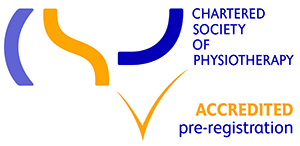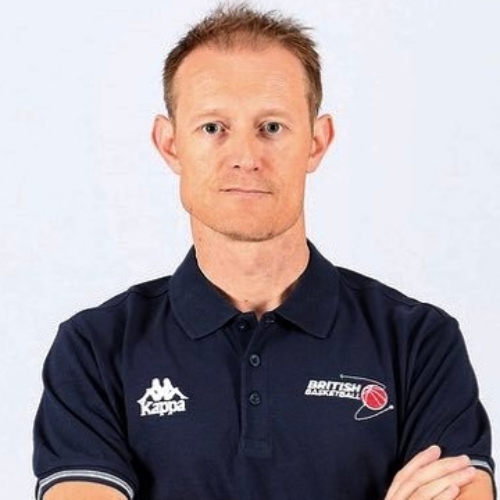Physiotherapy, BSc Hons
Physiotherapy is a science-based profession that puts the patient at the centre of care from acute hospitals to sporting environments.
Our Physiotherapy degree is an innovative, forward looking, and collaborative course that will draw on elements which inspire students to excel with a ‘no limits’ attitude. Physiotherapy is an exciting and growing profession and has many career pathways available. The physiotherapy programme at the University of Greenwich will enable you to learn how to manage people with a range of pathologies in different health and social care settings.
You will be supported in developing personal, professional, academic, and clinical skills, that you will apply on practice placements from Year 1. Part of the practice placement preparation will take place in our Greenwich Learning and Simulation Centre (GLASC) which boasts state-of-the-art facilities for simulation-based education which, is integrated into our programmes, enabling students to be better equipped to provide high quality care to patients.
UCAS points
128 (full requirements below)
Course/institution codes
B160 A BSc/Phy
School
Location
Duration
3 years full-time
Start month
September
Home* fees 2026/27
£9,790
What you should know about this course
* Home fees
The government regulated undergraduate home tuition fee rate for 2026-27 has been confirmed as £9,790 per year.
What you will study
About the course team
The programme is delivered by a highly experienced team of academic and clinical physiotherapists.
Come and meet us
We are offering virtual events so you can still experience how Greenwich could be the right university for you.
Next Open Days
Got a question?
To find out more about our Open Days and Campus Tours or if you need any assistance, please email opendays@gre.ac.uk.
Entry requirements
Qualifications
Programme not open to overseas applicants requiring a Student Visa.
- 128 UCAS Tariff points which must include a Science subject. We accept A Levels, T Levels, BTECs, Access to HE and all other qualifications with UCAS Tariff points.
- In addition, you will need: GCSE Mathematics, GCSE English Language and GCSE Science all at grade 4/C. Equivalent qualifications may be considered.
We make Contextual offers to this programme. Applicants that meet specific eligibility criteria will be made a contextual offer with a reduced tariff of up to 16 UCAS Tariff points. Other entry requirements such as GCSEs, Interview, etc., will still need to be met. For further information, please see our Contextual Admissions policy.
Application and selection
- Suitable applicants will be required attend an interview.
- Applicants will also be required to:
- Provide an academic or professional reference.
- Demonstrate an interest in, and understanding of, the programme they are applying to within the personal statement.
- Complete a Suitability Declaration.
- Pass an Occupational Health check.
- Pass an Enhanced Disclosure and Barring Service (DBS) check. - Applicants are encouraged to obtain appropriate healthcare experience through work shadowing or observation either voluntary or paid with a Registered Chartered Physiotherapist.
For more information, use our contact form or call us on 020 8331 9000.
You can also read our admissions policy.
Available to overseas students?
No
Can I use Prior Learning?
Find out more on our Recognition of Prior Learning pages.
How you will learn
Teaching
Learning takes place through a combination of timetabled learning and independent study.
You can view more information about how each module is taught within our 'What you will study' section.
Seminars and workshops enable you to discuss and develop your understanding of topics covered in lectures in smaller groups. You will also be able to meet your personal tutor. Timetabled learning may fall between 9am and 9pm depending on your courses and tutorials.
Class sizes
Class sizes vary by module. Lectures are normally attended by larger groups, and seminars/tutorials by smaller groups. This can vary more widely for modules that are shared between degrees. All students will have opportunities for 1-to-1 time with their tutors.
Independent learning
Outside of timetabled sessions, you are also expected to dedicate around 30 hours a week to self-study. This may involve further reading and research, preparing coursework and presentations, and preparing for tests and exams. Our facilities are designed to support you in these activities.
We encourage you to join societies and participate in sporting and other activities to engage in the wider life of the university community.
Overall workload
Workload consists of contact hours (lectures, seminars, workshops), independent learning, placements and assessments. As this is a full-time programme, the workload should be roughly equivalent to a full-time job. Each module you study towards this degree is worth 30 credits. These represent around 300 hours respectively. If you receive 100 contact hours for a 30-credit module, you should expect to commit 200 hours to independent study to complete it successfully.
Assessment
You can view how each module is assessed within our 'What you will study' section.
Each course has formal assessments which count towards your grade. Some courses may also include 'practice' assignments, which help you monitor progress and do not count towards your final grade.
Feedback summary
We aim to provide feedback on assignments and to release examination results within 15 working days.
Dates and timetables
The academic year runs from September to June.
Full teaching timetables are not usually available until term has started. For any queries, please use our contact form.
Fees and funding
Tuition fees
| Cohort | Full time | Part time | Distance learning |
|---|---|---|---|
| Home* | £9,790 | N/A | N/A |
University is a great investment in your future. English-domiciled graduate annual salaries were £10,500 more than non-graduates in 2023 - and the UK Government projects that 88% of new jobs by 2035 will be at graduate level.
(Source: DfE Graduate labour market statistics: 2023/DfE Labour market and skills projections: 2020 to 2035).
* Home fees
The government regulated undergraduate home tuition fee rate for 2026-27 has been confirmed as £9,790 per year.
Other costs
Additional costs will include placement travel costs (dependant on placement location and based on excess or additional costs. Can be claimed back via NHS TDAE), CSP Student membership fees (£44.04 per year or £3.67 per month) and additional optional society fees. Additional costs for field trips may occur during the course with some of these being optional (T.B.C.).
Further costs may include (but are not limited to):
- Resources: you may need to purchase books for your studies, as well as appropriate sports kit
- Field trips: you may need to contribute towards the outdoor and adventurous activity field trip(s) (estimate, £100-£300).
Scholarships and bursaries
We offer a wide range of financial help including scholarships and bursaries.
The Greenwich Bursary
This bursary is worth £700 for new undergraduate students with a low household income, entering Year 0 or 1 who meet the eligibility criteria.
Financial support
We want your time at university to be enjoyable, rewarding, and free of unnecessary stress, so planning your finances before you come to university can help to reduce financial concerns. We can offer advice on living costs and budgeting, as well as on awards, allowances and loans.
Careers and placements
Will I have a work placement?
You will experience placements across all three years of your programme across a range of providers including acute and community trusts, primary care, and the independent sector. You will need to accrue a minimum of 1,000 hours clinical practice to successfully graduate. You will be assigned a Practice Educator who will support and assess your development within the setting you are experiencing. You will have a University link tutor to communicate with the practice educator and placement provider to help optimise the placement experience to a successful outcome.
How long is my placement?
The BSc Hons Physiotherapy has five placements each six weeks in duration. One placement in year one and two in each of the subsequent years.
What sort of careers do graduates pursue?
Physiotherapy is a career with many pathways to choose from. Graduates often choose to gain a broad set of fundamental in skills in the NHS through rotational posts prior to specialising in an area of practice or moving into the independent sector inclusive of working in sport. Additional routes outside of acute, community and primary care include research and working in academia. Fundamentally the BSc Hons Physiotherapy provides a foundation and will prepare you for the academic, clinical, and professional environments you will go on to work in.
The programme is committed to providing students with a firm basis in lifelong learning which will carry them through early qualification and into established practice, enabling graduates to work confidently and effectively as producers of knowledge with genuine curiosity, applying knowledge effectively within different contexts, using technology to support and enhance the efficacy of their practice, evaluating outcomes as well as developing business skills.
On graduation students will be able to apply for registration with the Health Care Professions Council (HCPC) and for membership of the Chartered Society of Physiotherapy (CSP).
Do you provide employability services?
Our Employability & Careers Service (ECS) is committed to supporting our students and recent graduates in their transition towards a rewarding graduate destination. Our services help our students achieve their potential. We provide the following:
- CV and cover letter checks
- Application support
- One-to-one careers advice
- Interview tips and support
- Careers fairs
- Internships
- Graduate jobs
Accommodation
Avery Hill
Our Avery Hill halls of residence are a home away from home to over 1,200 students. For those studying in Greenwich, our free shuttle bus service takes you to Greenwich campus in only 25 minutes. Excellent transport links also mean you can be in central London in under 30 minutes, and you're a short walk away from the historic Eltham Palace.
The Avery Hill student village has many useful facilities including a convenience store, launderette and two cafes. The halls are an ideal option for those wanting access to the hustle and bustle of London while living in a safe and relaxing parkland environment.
With our seven different halls, you have a variety of options depending on your preferences and budget. Rooms start at £133.98/wk and include Wi-Fi, utility bills, access to our on-site gym, 24/7 security and 24-hour residential support.
Support and advice
Academic skills and study support
We want you to make the most of your time with us. You can access study skills support through your tutor, our subject librarians, and our online academic skills centre.
Where appropriate, we provide support in academic English and mathematics. If you need to use particular IT packages for a specific module, we provide training for this.
Not quite what you were looking for?
We've got plenty of other courses for you to choose from. Browse our undergraduate courses or check our related courses below.....
Health and social care at the University of Greenwich
You’ll learn from our expert, research-active tutors and be well supported during your work placement. You’ll benefit from great job prospects thanks to our strong links with NHS trusts and social care providers.
Visit our health and social care degrees page.
A comprehensive guide to our new physiotherapy course with Mark Dayson
Embark on an exhilarating path with our latest BSc Hons Physiotherapy course. This hands-on, practical course readies you for the clinical realm through immersive practice placements and beyond.
Health and social care degrees
Mode of study
Select from the dropdown below.
| Course level | |
| UCAS code | |
| Duration | |
| Location |











